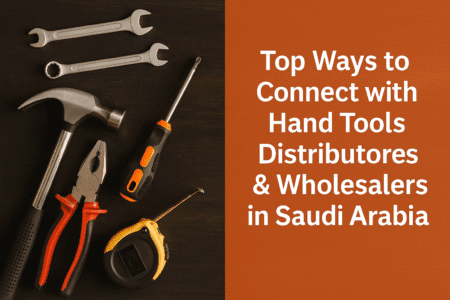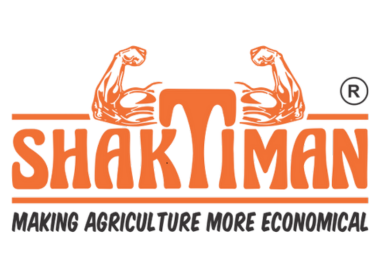
Introduction
Saudi Arabia is one of the largest and fastest-growing markets for hand tools in the Middle East. With mega infrastructure projects, a booming construction sector, expanding automotive workshops, and increased household demand, the country has become a hub for hand tool imports and distribution. For global exporters, manufacturers, and B2B buyers, finding reliable hand tools distributors and wholesalers in Saudi Arabia is essential to establishing a strong supply chain.
This article highlights the top ways to connect with distributors and wholesalers, explains why Saudi Arabia is a promising market, and provides practical tips for building long-term B2B partnerships.
Why Saudi Arabia is a Key Market for Hand Tools
Before diving into sourcing methods, it’s important to understand why Saudi Arabia is such a lucrative destination for hand tools:
- Vision 2030 Infrastructure Projects: Mega projects like NEOM City, Red Sea developments, and metro expansions demand massive quantities of industrial and construction tools.
- Automotive Industry Growth: With millions of vehicles on the road, workshops and garages require constant supplies of wrenches, pliers, and toolkits.
- Rising Retail & DIY Trends: An expanding middle class drives sales of household toolkits for small repairs.
- High Dependence on Imports: Much of Saudi Arabia’s hand tool demand is fulfilled by imports from India, China, Germany, and Japan.
This demand creates strong opportunities for exporters, wholesalers, and distributors to build profitable connections in the Saudi market.
Categories of Hand Tools in High Demand
To connect with the right distributors, it helps to know what product categories dominate the Saudi market:
- Construction Tools: Hammers, measuring tapes, pliers, and spanners.
- Automotive Tools: Wrenches, socket sets, screwdrivers, and toolkits.
- Electrical Tools: Insulated pliers, testers, and cutters.
- Industrial Tools: Torque wrenches, heavy-duty pullers, and precision measuring tools.
- Household Tools: Multi-purpose kits, screwdrivers, and adjustable wrenches.
Top Ways to Connect with Hand Tools Distributors & Wholesalers in Saudi Arabia
1. Participate in Trade Shows & Exhibitions
Saudi Arabia hosts several industrial and hardware trade fairs where leading distributors showcase their networks and product lines.
Key events include:
- Saudi Build (Riyadh): Focuses on construction tools and building equipment.
- Saudi Hardware & Tools Expo: Brings together global exporters and local distributors.
- The Big 5 Saudi: Covers construction, electrical, and industrial tools.
👉 Attending these events gives exporters direct access to decision-makers and procurement officers. Exhibitions are also the best way to verify suppliers in person.
2. Use B2B Online Marketplaces
Many Saudi distributors and wholesalers list their businesses on global B2B portals.
- Alibaba – Multiple verified Saudi distributors and trading companies.
- Tradekey Saudi Arabia – Strong presence of tool wholesalers.
- Global Sources – Used by importers to connect with Asian exporters.
- Made-in-China – Several Saudi buyers are registered here for bulk imports.
👉 Searching with keywords like “hand tools distributor Saudi Arabia” or “wholesale hardware tools Riyadh” will help identify potential partners.
3. Leverage Saudi Business Directories
Saudi Arabia has a number of local directories and chambers of commerce that publish verified lists of wholesalers and distributors.
- Saudi Yellow Pages – Comprehensive listing of hardware suppliers.
- Saudi Arabia Chamber of Commerce – Maintains a database of licensed importers.
- Kompass Saudi Arabia – International B2B directory with verified contacts.
👉 These directories are useful for shortlisting companies, verifying their legal presence, and contacting them directly.
4. Connect via LinkedIn & Social Media
Professional networking platforms are powerful tools for connecting with Saudi business owners.
- Search LinkedIn using keywords like “Hand Tools Distributor Saudi Arabia” or “Hardware Wholesaler Riyadh”.
- Join Saudi-focused B2B trade groups where suppliers share updates.
- Connect directly with procurement managers and distributors through InMail.
👉 Building relationships on LinkedIn allows exporters to create trust before formal negotiations.
5. Partner with Local Trading Companies
Saudi law requires many sectors to operate through licensed local partners. Many trading companies act as intermediaries between foreign exporters and Saudi distributors.
Benefits of using trading partners:
- They handle import documentation.
- They have existing networks with wholesalers.
- They can arrange custom clearance and logistics.
👉 For exporters unfamiliar with Saudi regulations, this is one of the most efficient routes.
6. Explore Industrial Hubs & Hardware Markets
Major cities like Riyadh, Jeddah, and Dammam have clusters of wholesalers and hardware markets.
- Riyadh Industrial Zone – Home to many tool distributors.
- Jeddah Hardware Market – Known for wholesale hardware trading.
- Dammam Industrial Area – Focused on industrial and oilfield tools.
👉 Visiting these hubs gives firsthand exposure to wholesaler operations and allows you to negotiate directly.
7. Collaborate with Saudi Chambers & Associations
Organizations such as:
- Council of Saudi Chambers of Commerce
- Saudi Export Development Authority
- Saudi Industrial Development Fund (SIDF)
… provide updated lists of registered distributors and importers. These associations are also excellent platforms for introductions and trade networking.
8. Use Trade Agents & Consultants
Many local trade agents specialize in connecting international exporters with Saudi distributors. They typically charge a commission but provide:
- Market entry support.
- Local introductions.
- Negotiation and documentation assistance.
👉 Hiring a local consultant reduces the risks of miscommunication and non-compliance.
Steps to Successfully Partner with Saudi Distributors
- Market Research – Identify demand trends in construction, automotive, and industrial tools.
- Shortlist Reliable Distributors – Use trade shows, directories, and online platforms.
- Verify Legitimacy – Check trade licenses and chamber registrations.
- Negotiate Trade Terms – Discuss pricing, minimum orders, and payment methods (LC, advance, credit).
- Ensure Quality Compliance – Saudi buyers prefer ISO-certified and durable tools.
- Build Long-Term Relations – Trust is critical in Saudi business culture.
Challenges in the Saudi Hand Tools Market
While the opportunities are vast, exporters must also be aware of:
- Regulatory Barriers: Some tools may need special certifications.
- Cultural Business Practices: Deals often take longer due to relationship building.
- Competition: Global brands and regional suppliers are active in the market.
- Currency & Pricing Issues: Oil-based economy influences buying power.
👉 Overcoming these challenges requires patience, compliance, and strong relationship management.
FAQs
Q1: What is the best way to find hand tools wholesalers in Saudi Arabia?
A: The most effective ways are trade shows (like Saudi Build), Saudi Yellow Pages, and LinkedIn networking.
Q2: Can foreign exporters sell directly to Saudi distributors?
A: Yes, but often through licensed trading companies or local agents.
Q3: Which hand tools are in highest demand in Saudi Arabia?
A: Wrenches, pliers, toolkits, screwdrivers, and construction tools.
Q4: How can I verify Saudi distributors before trading?
A: Use the Saudi Chamber of Commerce, request trade licenses, and check past references.
Conclusion
Saudi Arabia presents a high-growth market for hand tools due to its infrastructure boom, automotive demand, and strong import reliance. To connect with distributors and wholesalers, exporters should use a multi-channel approach: trade fairs, online B2B platforms, directories, LinkedIn, and local agents.
By following the top ways outlined in this guide, businesses can establish trusted partnerships, secure profitable contracts, and expand their presence in the Saudi market.
Whether you are a global exporter or a regional supplier, building the right distributor relationships in Saudi Arabia can unlock long-term success in the Middle East.























